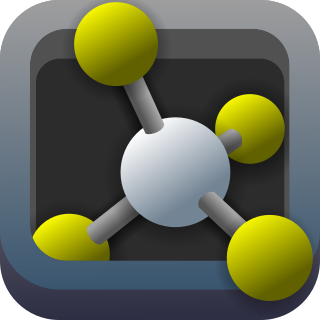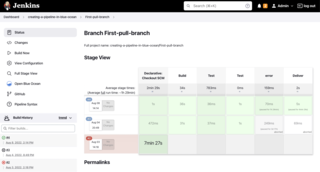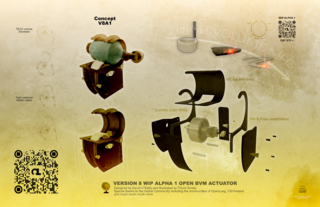The MIT License is a permissive free software license originating at the Massachusetts Institute of Technology (MIT) in the late 1980s. As a permissive license, it puts only very limited restriction on reuse and has, therefore, high license compatibility.
Source-available software is software released through a source code distribution model that includes arrangements where the source can be viewed, and in some cases modified, but without necessarily meeting the criteria to be called open-source. The licenses associated with the offerings range from allowing code to be viewed for reference to allowing code to be modified and redistributed for both commercial and non-commercial purposes.

Open-source hardware (OSH) consists of physical artifacts of technology designed and offered by the open-design movement. Both free and open-source software (FOSS) and open-source hardware are created by this open-source culture movement and apply a like concept to a variety of components. It is sometimes, thus, referred to as FOSH. The term usually means that information about the hardware is easily discerned so that others can make it – coupling it closely to the maker movement. Hardware design, in addition to the software that drives the hardware, are all released under free/libre terms. The original sharer gains feedback and potentially improvements on the design from the FOSH community. There is now significant evidence that such sharing can drive a high return on investment for the scientific community.

PyMOL is an open source but proprietary molecular visualization system created by Warren Lyford DeLano. It was commercialized initially by DeLano Scientific LLC, which was a private software company dedicated to creating useful tools that become universally accessible to scientific and educational communities. It is currently commercialized by Schrödinger, Inc. As the original software license was a permissive licence, they were able to remove it; new versions are no longer released under the Python license, but under a custom license, and some of the source code is no longer released. PyMOL can produce high-quality 3D images of small molecules and biological macromolecules, such as proteins. According to the original author, by 2009, almost a quarter of all published images of 3D protein structures in the scientific literature were made using PyMOL.
A permissive software license, sometimes also called BSD-like or BSD-style license, is a free-software license which instead of copyleft protections, carries only minimal restrictions on how the software can be used, modified, and redistributed, usually including a warranty disclaimer. Examples include the GNU All-permissive License, MIT License, BSD licenses, Apple Public Source License and Apache license. As of 2016, the most popular free-software license is the permissive MIT license.
HTML Tidy is a console application for correcting invalid HyperText Markup Language (HTML), detecting potential web accessibility errors, and for improving the layout and indent style of the resulting markup. It is also a cross-platform library for computer applications that provides HTML Tidy's features.

The WTFPL is a permissive free software license. As a public domain like license, the WTFPL is essentially the same as dedication to the public domain. It allows redistribution and modification of the work under any terms. The title is an abbreviation of "Do What The Fuck You Want To Public License".
License proliferation is the phenomenon of an abundance of already existing and the continued creation of new software licenses for software and software packages in the FOSS ecosystem. License proliferation affects the whole FOSS ecosystem negatively by the burden of increasingly complex license selection, license interaction, and license compatibility considerations.
License compatibility is a legal framework that allows for pieces of software with different software licenses to be distributed together. The need for such a framework arises because the different licenses can contain contradictory requirements, rendering it impossible to legally combine source code from separately-licensed software in order to create and publish a new program. Proprietary licenses are generally program-specific and incompatible; authors must negotiate to combine code. Copyleft licenses are commonly deliberately incompatible with proprietary licenses, in order to prevent copyleft software from being re-licensed under a proprietary license, turning it into proprietary software. Many copyleft licenses explicitly allow relicensing under some other copyleft licenses. Permissive licenses are compatible with everything, including proprietary licenses; there is thus no guarantee that all derived works will remain under a permissive license.
A Contributor License Agreement (CLA) defines the terms under which intellectual property has been contributed to a company/project, typically software under an open source license.

GitHub, Inc. is an AI-powered developer platform that allows developers to create, store, and manage their code. It uses Git software, providing the distributed version control of Git plus access control, bug tracking, software feature requests, task management, continuous integration, and wikis for every project. Headquartered in California, it has been a subsidiary of Microsoft since 2018.

Jenkins is an open source automation server. It helps automate the parts of software development related to building, testing, and deploying, facilitating continuous integration, and continuous delivery. It is a server-based system that runs in servlet containers such as Apache Tomcat. It supports version control tools, including AccuRev, CVS, Subversion, Git, Mercurial, Perforce, ClearCase, and RTC, and can execute Apache Ant, Apache Maven, and sbt based projects as well as arbitrary shell scripts and Windows batch commands.

Travis CI is a hosted continuous integration service used to build and test software projects hosted on GitHub, Bitbucket, GitLab, Perforce, Apache Subversion and Assembla.
A free license or open license is a license which allows others to reuse another creator’s work as they wish. Without a special license, these uses are normally prohibited by copyright, patent or commercial license. Most free licenses are worldwide, royalty-free, non-exclusive, and perpetual. Free licenses are often the basis of crowdsourcing and crowdfunding projects.

Unvanquished is a free and open-source video game. It is a multiplayer first-person shooter and real-time strategy game where Humans and Aliens fight for domination.

Weblate is an open source web-based translation tool with version control. It includes several hundred languages with basic definitions, and enables the addition of more language definitions, all definitions can be edited by the web community or a defined set of people, as well as through integrating machine translation, such as DeepL, Amazon Translate, or Google Translate.

The Journal of Open Hardware is a peer-reviewed open access scientific journal for open-source hardware development. The Journal publishes Hardware Metapapers which describe open-source research hardware, and is the currently the only scientific journal extending its peer review to hardware documentations hosted on external platforms.

An open-source ventilator is a disaster-situation ventilator made using a freely licensed (open-source) design, and ideally, freely available components and parts. Designs, components, and parts may be anywhere from completely reverse-engineered or completely new creations, components may be adaptations of various inexpensive existing products, and special hard-to-find and/or expensive parts may be 3D-printed instead of purchased. As of early 2020, the levels of documentation and testing of open-source ventilators was well below scientific and medical-grade standards.










